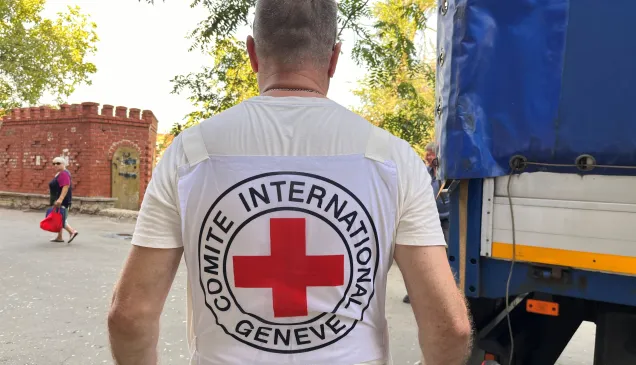Expert meeting report
The ICRC convened an international expert meeting on autonomous weapon systems from 26 to 28 March 2014. It brought together government experts from 21 States and 13 individual experts, including roboticists, jurists, ethicists, and representatives from the United Nations and non-governmental organizations. The aim was to gain a better understanding of the particular issues raised by autonomous weapon systems.
- A summary report of the expert meeting was first published on 9 May 2014.
- This longer report (November 2014) combines the summary report with selected presentations given by independent experts at the meeting and a background paper prepared by the ICRC to facilitate discussions.
The ICRC has compiled this report as an additional resource for States as they continue to examine the technical, legal and ethical questions raised by autonomous weapon systems.
There is no internationally agreed definition of autonomous weapon systems. For the purposes of the meeting, ‘autonomous weapon systems’ were defined as weapons that can independently select and attack targets, i.e. with autonomy in the ‘critical functions’ of acquiring, tracking, selecting and attacking targets.
There are different views on the adequacy of IHL to regulate the development and use of autonomous weapon systems. Some take the view that existing law is sufficient. Others argue that an explicit ban on autonomous weapon systems is necessary, or the development of a legal norm requiring, and defining, ‘meaningful human control’.
Even if autonomous weapon systems could be used in compliance with IHL rules, ethical and moral challenges need to be considered carefully. There is the question of whether the principles of humanity and the dictates of public conscience allow life and death decisions to be taken by a machine with little or no human control. It is argued that the manner in which people are killed matters, even if they are lawful targets. Some emphasise that respecting the human right to dignity means that killing capacity cannot be delegated to a machine; rather, the decision to take someone’s life must remain with humans.



